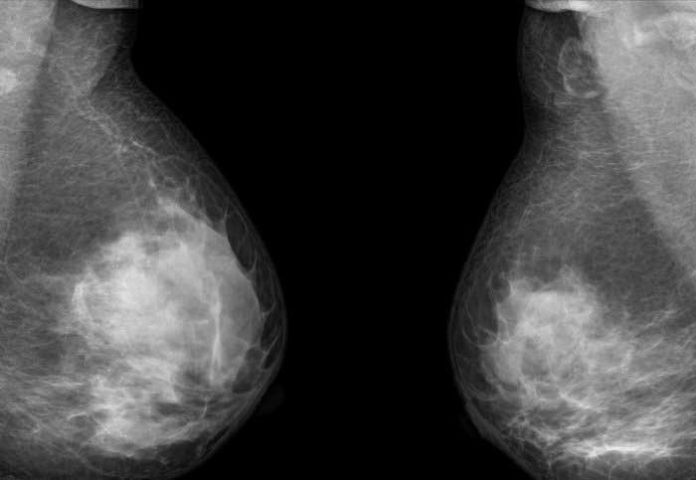In a recent study by the University of Leicester and Imperial College London, scientists have shown that a simple breast cancer blood test could help to spot relapse earlier. The test has shown an 89% success rate of all relapses, on average 8.9 months quicker than imaging.
Women who receive chemotherapy, hormone therapy, or both, in addition to surgery, have a higher rate of relapse-free survival than women who do not receive adjuvant or neoadjuvant therapy. However, even following systemic therapy, breast cancer survivors remain at risk for relapse.
During the study, scientists recruited 49 patients with early-stage breast cancer from three NHS trusts in the UK (Imperial College Healthcare, The Christie Foundation and University Hospitals of Leicester) who had recently completed treatment with surgery and adjuvant chemotherapy.
The study included a cross-section of breast cancer subtypes, including HER2-positive, hormone receptor-positive, and triple-negative. Blood samples were collected every 6 months for up to 4 years from each patient, and results were correlated with radiographic and clinical outcomes.
Signatera, the blood test developed by genetic testing company Natera, uses a molecular residual disease (MRD) assessment to detect even trace amounts of the mutant DNA released from dying tumors, enabling such early detection of relapse.
Professor Jacqui Shaw, Professor of Translational Cancer Research at the University of Leicester, said: “Currently, there are no sensitive and specific clinical tests available to follow breast cancer patients after their primary treatment.”
“The results of this exciting study show that it is possible to monitor patients with a simple blood-based test, and this may provide a critical window of opportunity for earlier treatment than by other current tests.”
Professor Charles Coombes, Professor of Medical Oncology at Imperial College London, said: “Standard technologies for the detection of cancer recurrence have always been imprecise. With this innovative method of detecting minimal residual breast cancer, we now have the opportunity to conduct trials of treatments to prevent patients from relapsing with symptomatic metastatic breast cancer.”
Dr. David Crosby, head of early detection at Cancer Research UK, said: “The initial results of this study are encouraging. Monitoring when breast cancer returns in some patients is an important step in improving survival. Using circulating tumor DNA from a blood test is an emerging and promising method, although it requires further validation. I look forward to seeing the next steps of this research using a larger group of patients.”
The study is published in the journal Clinical Cancer Research.
